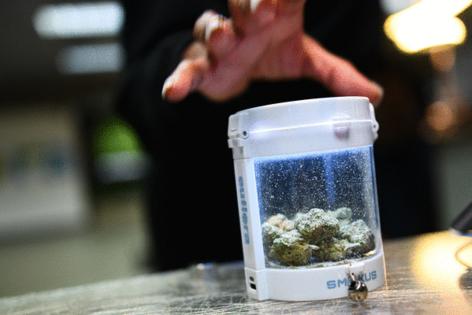'A big deal': What the feds' move to reclassify marijuana means for Colorado cannabis
Published in News & Features
DENVER — Cannabis advocates in Colorado cheered the Biden Administration’s reported move to reclassify marijuana and said the decision likely would reduce businesses’ tax burden significantly.
Industry leaders cautioned that such a move — if finalized — would not resolve some major challenges facing the industry, such as limited access to banking. But they pointed to the symbolic importance of preparations by the U.S. Drug Enforcement Administration to downgrade the substance’s drug classification.
“This will be the biggest change in drug policy at the federal level in at least 50 years, if not ever,” said Truman Bradley, executive director of the Marijuana Industry Group, a Colorado-based trade association. “The DEA has had the option to reschedule marijuana before this and elected to keep it at Schedule I, so a reversal is a big deal.”
The Associated Press reported Tuesday that the agency planned to move marijuana’s drug classification from Schedule I to the less restrictive Schedule III in a “historic shift of American drug policy that could have wide ripple effects across the country.” The change, if finalized, would not legalize it nationally but would loosen certain restrictions.
Since the passage of the Controlled Substances Act in 1970, cannabis has been listed on Schedule I alongside LSD, heroin and other drugs deemed to have no accepted medical use and a high potential for abuse.
The DEA considers drugs in Schedule III to have “moderate to low potential for physical and psychological dependence.” Substances in that category include ketamine, anabolic steroids and some products containing codeine.
Since August, when the DEA indicated it would consider rescheduling marijuana, a chorus of state and federal officials, including Colorado Gov. Jared Polis and Attorney General Phil Weiser, have supported doing so.
The effects of such a move would undoubtedly reach Colorado, where cannabis has been legal for recreational use for more than a decade and for medical purposes since 2000.
According to local experts and proprietors, the biggest impact will be financial.
Federal tax code, in section 280E, dictates that companies working with Schedule I or Schedule II substances are prohibited from deducting many standard business expenses from taxable gross income. That means state-legal cannabis growers, dispensaries and manufacturers “end up paying an extremely high effective tax rate — far beyond what any other business might pay,” said Andrew Freedman, executive director of the Coalition for Cannabis Policy, Education and Regulation, which advocates for drug reform on the federal level. He formerly was a state marijuana regulator in Colorado.
...continued
©2024 MediaNews Group, Inc. Visit at denverpost.com. Distributed by Tribune Content Agency, LLC.







Comments